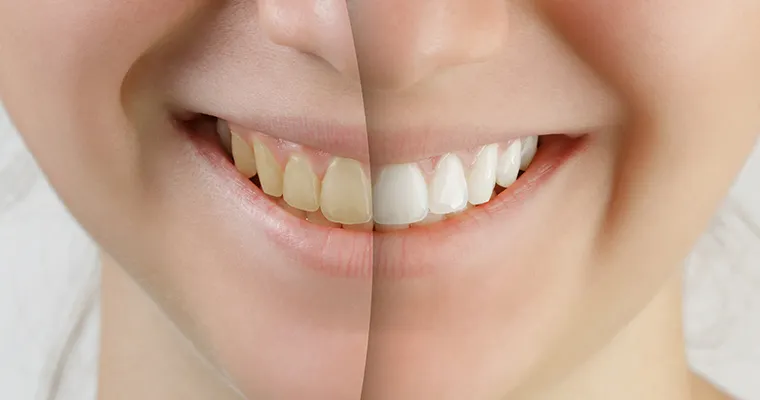Understanding the White Teeth Diet After Whitening
Achieving a dazzling white smile is a common goal, and teeth whitening treatments are increasingly popular. However, the journey doesn’t end with the procedure itself. What you eat and drink in the days and weeks following teeth whitening is crucial to maintaining your bright new smile and preventing stains. Understanding the white teeth diet after whitening is essential to protect your investment and ensure long-lasting results. This specialized diet is not a permanent lifestyle change but a temporary adjustment designed to help your teeth remain white and vibrant after the whitening process. It focuses on avoiding foods and beverages known to stain teeth while emphasizing those that contribute to oral health. Following this diet diligently will significantly impact how long your teeth stay their whitest.
Why Diet Matters After Teeth Whitening
The reason diet plays such a critical role immediately after teeth whitening is because the pores in your enamel are temporarily more susceptible to staining. During the whitening process, the enamel is slightly dehydrated, making it more porous. This increased porosity means that pigments from food and drinks can easily penetrate the enamel and cause discoloration. The white teeth diet acts as a protective measure, allowing the enamel to remineralize and the pores to close gradually. By avoiding staining agents during this period, you give your teeth the best chance to retain their new, bright appearance. Additionally, certain foods can contribute to overall oral health, supporting the health of your gums and helping to keep your teeth strong and resistant to future staining.
How Food Affects Your Whitened Teeth
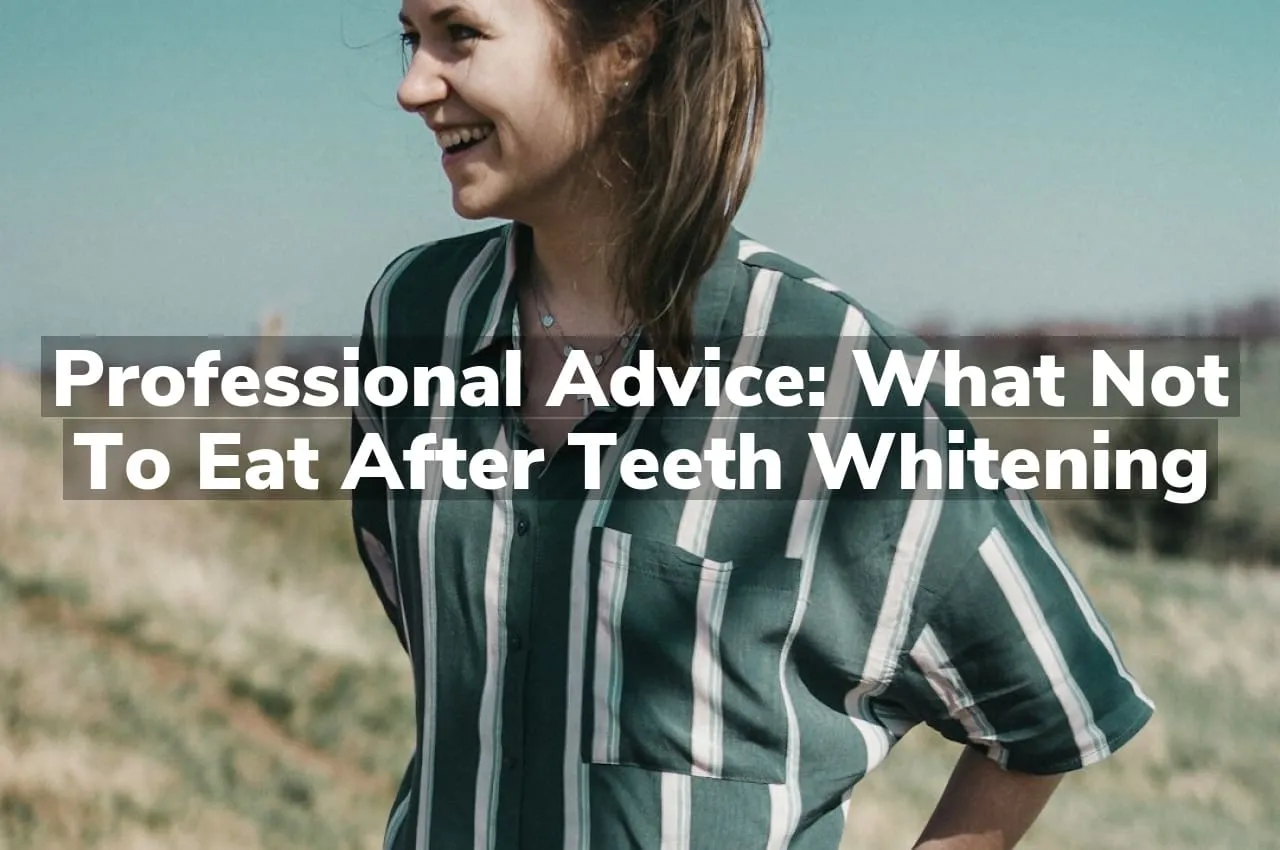
Food and beverages can have a direct impact on the longevity of your teeth whitening results. Pigments, also known as chromogens, are what cause staining. These pigments bind to the enamel and gradually darken the teeth. The white teeth diet focuses on avoiding foods and drinks with high chromogen content. Additionally, the acidity of certain foods and drinks can erode the enamel over time, making teeth more vulnerable to staining. Foods and beverages with a pH lower than 5.5 are considered acidic and should be consumed with caution. The white teeth diet helps minimize exposure to these factors, ensuring that your teeth remain whiter for a more extended period. Choosing the right foods is a key aspect of post-whitening care and contributes to the overall health and appearance of your smile.
Foods to Eat After Teeth Whitening
When following the white teeth diet, the focus is on consuming foods that won’t stain your teeth and, ideally, will support oral health. This primarily involves foods that are white, light-colored, and low in acidity. These choices minimize the risk of staining and help keep your teeth in excellent condition. Selecting the right foods is crucial in the days and weeks after whitening your teeth. Incorporating these choices into your diet can make a significant difference in the long-term success of your teeth whitening treatment.
Foods that Promote White Teeth
Certain foods can actively contribute to maintaining your bright, white smile. These foods often have properties that help to clean the teeth, neutralize acids, and promote saliva production, which naturally cleans the mouth. By incorporating these foods into your diet, you can support your efforts to keep your teeth white and healthy long after whitening. These selections provide essential nutrients and are less likely to stain your teeth. Integrating these choices can improve your overall oral health and make your smile even more radiant.
Dairy Products for Teeth Health
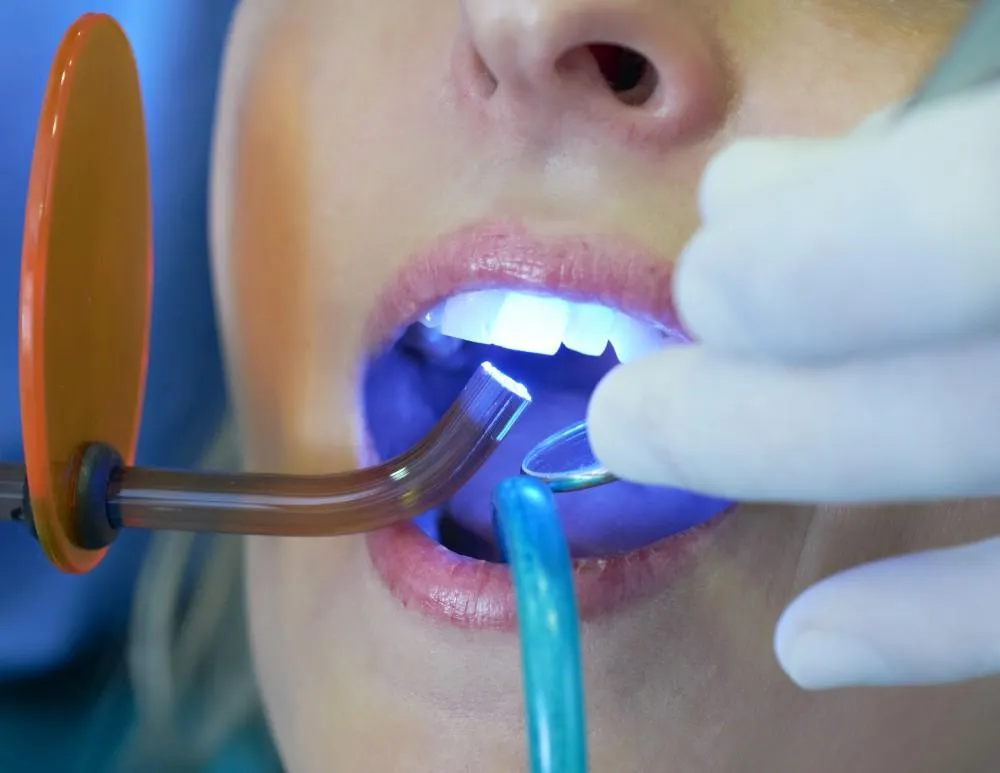
Dairy products, such as milk, yogurt, and cheese, are excellent choices for maintaining oral health after teeth whitening. These foods are rich in calcium, which strengthens tooth enamel and helps protect against staining. The calcium in dairy products also aids in remineralization, repairing the enamel and reducing the porosity that makes teeth susceptible to staining. Additionally, the proteins in dairy products can help to neutralize acids produced by bacteria in the mouth, further protecting your teeth. Dairy products can be a delicious and nutritious addition to your white teeth diet, offering benefits for both your smile and overall health.
White and Light-Colored Vegetables
White and light-colored vegetables are safe and beneficial choices for your teeth. Options like cauliflower, potatoes (without the skin), and white onions are unlikely to cause staining and provide essential vitamins and minerals. These vegetables are generally low in chromogens and acids, making them ideal for the white teeth diet. Incorporating these vegetables into your meals is an excellent way to add variety and nutrition to your diet without risking your teeth’s brightness. They offer valuable nutrients and support overall health while helping maintain your white smile.
Lean Proteins for Oral Health
Lean protein sources such as white fish, chicken breast, and tofu are excellent choices for the white teeth diet. These foods are generally safe because they don’t contain the pigments that can cause staining. Protein is also essential for overall health, including oral health. It helps in the repair and maintenance of tissues in the mouth, supporting healthy gums and strong teeth. These options are not only safe for your newly whitened teeth but also offer essential nutrients, contributing to overall well-being. Including these sources of protein will ensure a balanced and teeth-friendly diet.
Foods to Avoid After Teeth Whitening
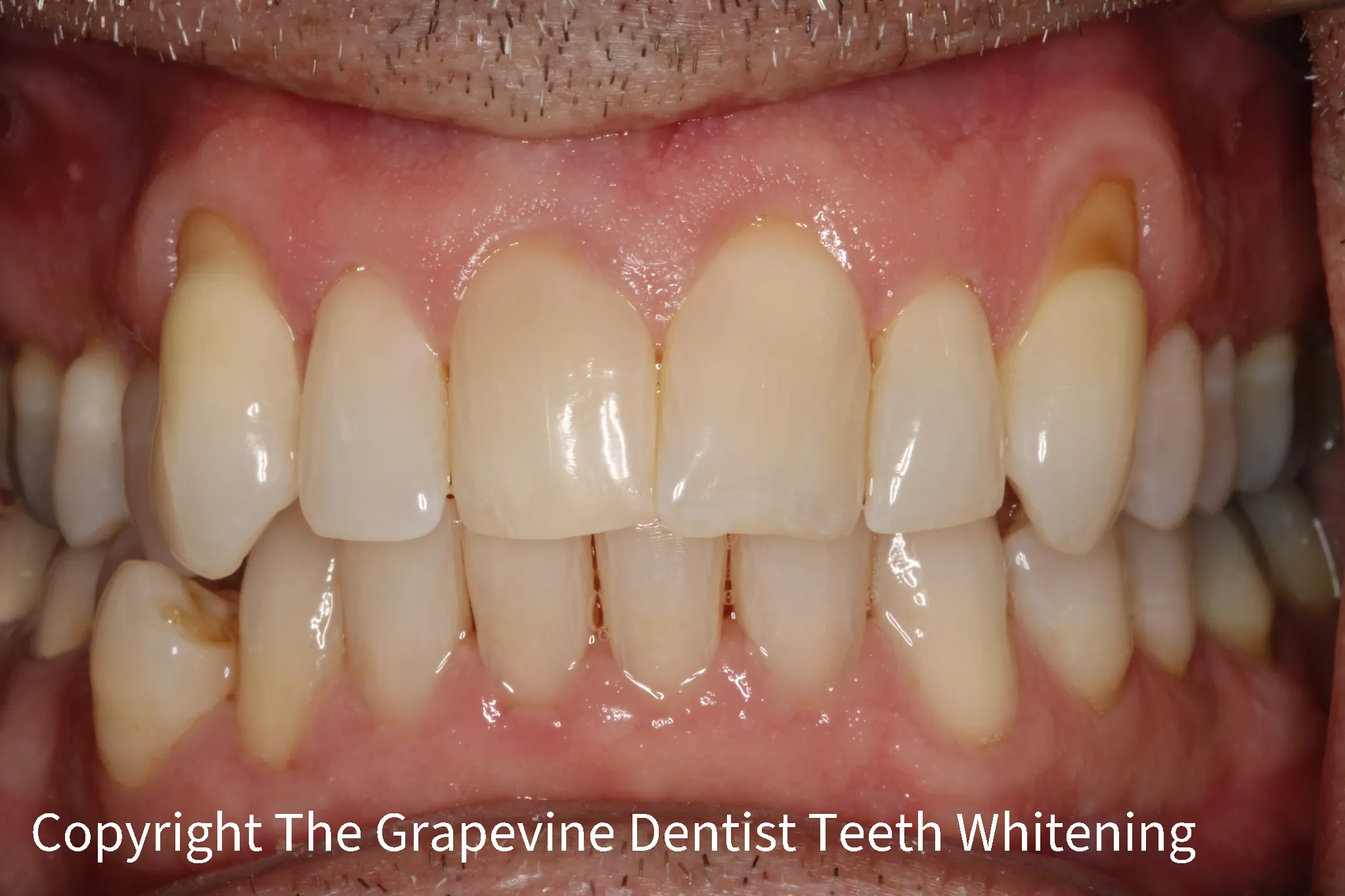
To protect your investment in teeth whitening, it’s essential to be mindful of foods that can stain your teeth. The white teeth diet involves avoiding certain foods and drinks that are high in pigments, acids, or artificial colors. These substances can easily penetrate the enamel and lead to discoloration. Sticking to the guidelines of avoiding these foods will help keep your teeth white. Knowing what to avoid is just as important as knowing what to eat. This helps make your efforts successful and prolong your teeth’s whiteness.
Foods that Stain Teeth
Certain foods are notorious for staining teeth due to their high pigment content. These include foods with intense colors and those with chromogens that easily attach to enamel. By avoiding these, you minimize the risk of discoloration. Being aware of these foods is crucial for maintaining a bright smile post-whitening. Keeping these food selections in mind can significantly impact how long your teeth stay at their whitest.
Dark-Colored Beverages
Dark-colored beverages are major culprits when it comes to teeth staining. Coffee, tea, and dark sodas contain high levels of chromogens that can quickly stain teeth. Even light-colored teas can have enough tannins to cause discoloration. It is best to avoid these beverages altogether for the first few days after whitening, or at least minimize consumption. This will reduce the chance of staining. The longer these beverages are avoided, the better the chances of retaining your white smile. Consider alternatives like water or clear herbal teas.
Highly Pigmented Fruits and Vegetables

Some fruits and vegetables, despite their health benefits, can also stain teeth. Berries (such as blueberries, raspberries, and blackberries), beets, and dark-skinned fruits and vegetables have high levels of pigments. These pigments can easily adhere to the enamel and lead to discoloration. During the initial post-whitening period, it is best to avoid these or consume them in moderation. This ensures that your teeth are not exposed to the staining properties of these otherwise healthy foods. Choose lighter-colored options like apples and pears.
Foods with Artificial Colors
Foods with artificial colors can also contribute to staining, as the artificial dyes used often contain pigments. Candies, brightly colored desserts, and artificially colored drinks should be avoided. These products do not offer significant nutritional value and can compromise your teeth’s brightness. Reading food labels and being aware of the ingredients in your food choices can help you avoid artificial colors. Making informed choices is a crucial step in keeping your teeth white and healthy.
Beverages to Consume with Caution
Certain beverages should be consumed with extra caution or avoided entirely during the post-whitening period. Their acidity and pigment content can lead to staining or erosion of the enamel. Being mindful of these drinks can help you maintain a white smile. Making thoughtful choices regarding your beverage intake can go a long way in preserving the brilliance of your whitened teeth.
Coffee and Tea
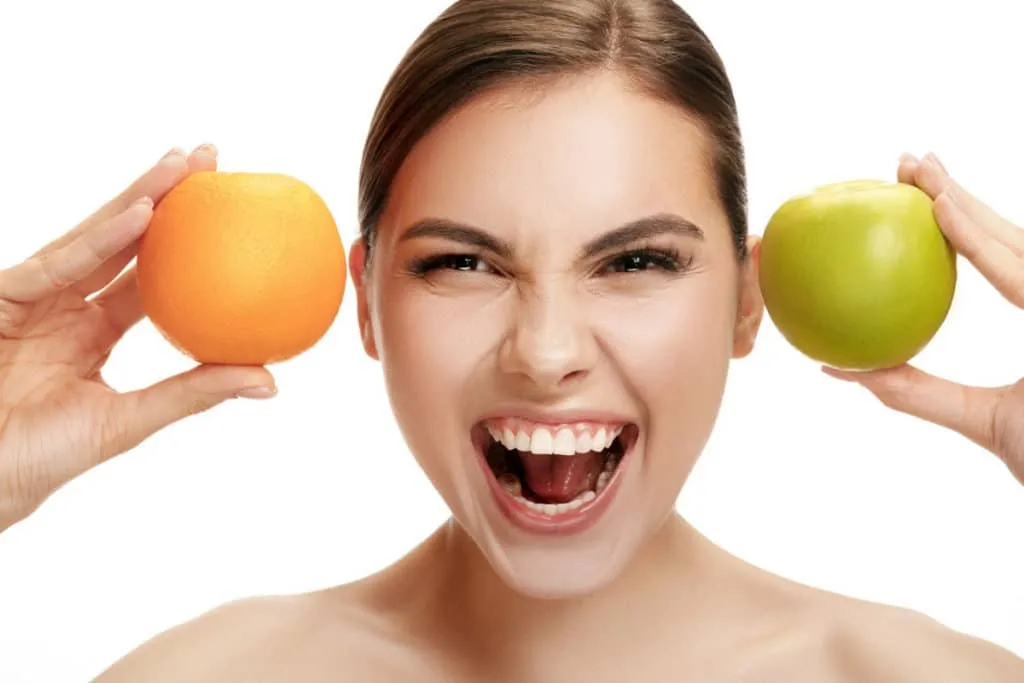
Coffee and tea are among the most common culprits for staining. Both contain tannins, which are compounds that bind to the teeth and cause discoloration. Even herbal teas can stain, depending on their color and composition. It is best to avoid coffee and tea for at least a few days after whitening and to minimize consumption for the first week or two. When you do consume them, consider using a straw to reduce contact with your teeth and rinsing your mouth with water afterward to mitigate staining.
Red Wine and Dark Juices
Red wine and dark juices are high in pigments and acids, making them significant sources of potential stains. Red wine, in particular, contains chromogens that can quickly discolor teeth. Dark juices, such as grape juice and cranberry juice, also have high pigment levels that can contribute to staining. It is recommended to avoid these for the first few days and to consume them sparingly in the following weeks. Opting for clear or light-colored beverages is a safer choice.
Tips for Maintaining White Teeth
Maintaining your white smile after teeth whitening requires more than just watching what you eat. Proper oral hygiene, lifestyle adjustments, and regular dental checkups are all essential components of keeping your teeth bright and healthy. These practices, when combined with a mindful diet, will help you enjoy your radiant smile for a long time. Adopting these habits is a proactive step toward long-term oral health and a beautiful smile.
Proper Oral Hygiene

Consistent and effective oral hygiene is essential. Brushing and flossing regularly removes food particles and plaque, preventing stains from forming. Regular dental checkups and cleanings are also crucial for maintaining your smile. Maintaining a healthy mouth keeps your teeth clean and bright. Proper oral hygiene is fundamental.
Brushing and Flossing Techniques
Brush your teeth at least twice a day, using a soft-bristled toothbrush and a whitening toothpaste. Brush gently to avoid damaging the enamel. Floss daily to remove food particles and plaque from between your teeth, where a toothbrush cannot reach. Proper brushing and flossing techniques are essential for preventing staining and promoting healthy teeth. Consistent and correct techniques contribute to a long-lasting bright smile.
Regular Dental Checkups
Schedule regular dental checkups and cleanings every six months. A professional cleaning can remove any surface stains and plaque that your brushing and flossing may have missed. Your dentist can also assess the overall health of your teeth and gums, addressing any potential problems early. Regular dental visits are vital in maintaining the whiteness and health of your teeth, as well as spotting any problems before they become severe.
Lifestyle Adjustments
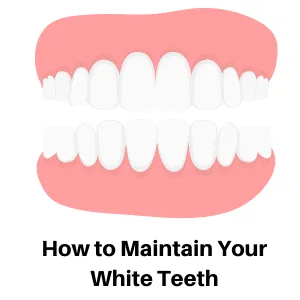
Making some lifestyle adjustments can significantly impact the longevity of your teeth whitening results. Avoiding certain habits and incorporating others can help keep your smile bright. Staying away from tobacco and staying hydrated are important to maintain a radiant smile. Making these adjustments is a key step in your efforts to maintain a dazzling, white smile.
Avoiding Tobacco Products
Tobacco products, including cigarettes, cigars, and chewing tobacco, are major contributors to tooth staining. They contain nicotine and other chemicals that cause teeth to yellow and become discolored over time. Avoiding these products is one of the best things you can do to maintain a white smile and protect your overall health. If you are a smoker, consider quitting. Your teeth and overall health will benefit.
Hydration for Oral Health
Staying hydrated is crucial for oral health. Drinking plenty of water helps rinse away food particles and bacteria, which can contribute to staining and plaque buildup. Water also stimulates saliva production, which naturally cleanses your mouth and helps to neutralize acids. Drinking water throughout the day keeps your mouth clean and healthy and supports your efforts to maintain a bright smile. Make water your beverage of choice.
The Importance of Hydration
Hydration is essential for maintaining a healthy mouth and a bright smile. Water rinses away food particles and bacteria, helping to prevent staining and plaque buildup. It also stimulates saliva production, which helps to neutralize acids and naturally clean the mouth. Drinking plenty of water is vital for maintaining oral health. Make water your primary beverage to ensure that your teeth and gums remain in excellent condition.
Conclusion
Following a white teeth diet after whitening is a crucial step in maximizing and preserving the results of your teeth whitening treatment. By understanding which foods and beverages to avoid and embracing those that support oral health, you can ensure your smile stays bright for a more extended period. Combining a mindful diet with good oral hygiene practices and regular dental checkups provides the best approach to achieving and maintaining a radiant, white smile. The journey to a brighter smile involves a combination of professional treatment and the right lifestyle choices. Following the white teeth diet is a small but important part of ensuring a beautiful and healthy smile for years to come. Prioritize what you eat and drink to maximize your results.
